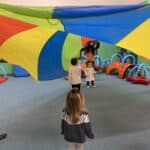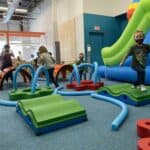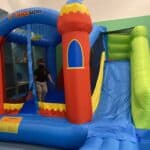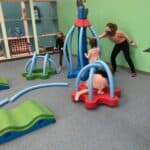How To Engage Children Around The House
Children need to feel that they’re a valued part of the family and that their efforts are appreciated. One way to help them learn valuable life skills is to engage them in activities that encourage cooperation and teamwork.
Make It A game
Games can help reduce restless energy by requiring attention and a certain amount of physical activity. They can also improve multi-tasking skills by requiring players to complete multiple tasks at once. For example, in a video game like Civilization or SimCity, players must plan ahead and make decisions that will affect the outcome of the story they are playing. This helps them develop long-term planning and decision-making skills that they can use in the real world. Children can practice their ability to solve puzzles by completing a simple one in a game of Paint Chip Color Hunt. They can keep a timer and speed up their pace by looking for items that match each color as closely as possible. Another fun game that helps kids improve their deductive skills is a Mystery Box. Hide objects in a box and have the kids try to guess what they are without seeing them. This is a great way to teach them about how their brain works.
Make it A competition
There are many ways to engage children around the house, but one of the easiest is to turn it into a competition. This is particularly important when it comes to social and emotional learning (SEL) as it allows students to practice their skills in a safe environment. A well-executed competition will also help you to get the kids attention and keep it there. The best way to do this is to make it a friendly competition with no real losers. As a matter of fact, the winning prize is often a reward for the student who has shown the most dedication to the activity. The best part is that the competition can be as short or long as you like. A competition may be as simple as a race or as complex as a series of activities designed to test students’ knowledge. The best way to make the competition a success is to use games that demonstrate the most relevant SEL skills.
Make It A Part Of Their Routine
When children know they have to do certain tasks at a certain time, it can help them stay focused. It’s a great way to help them develop the skills they need to be independent adults. Routines can take some time to establish, so it’s important to be patient. But, eventually, your kids will get the hang of it. One way to make sure your kids follow a routine is to write it down for them to see. This can be done on a chart that hangs somewhere they can see it every day. Another good way to get children to do their chores is to reward them for doing them promptly and correctly. For example, if they make their bed quickly and neatly, they can earn a checkmark on the chart. You can also encourage them to play around with their toys or other items. Using dried rice, pasta or beans in sensory bins can be fun for everyone involved.
Make It Age-Appropriate
Providing kids with a chance to take on responsibilities is crucial for their development and well-being. Research shows that kids who help around the house are less likely to become antisocial, and more likely to be helpful in other situations. Age-appropriate tasks can include anything from helping with meals to putting away laundry, as long as it’s not too difficult or too time-consuming. Experts suggest assigning a specific number of chores per week for younger children, and up to 30 minutes a day for older ones.







